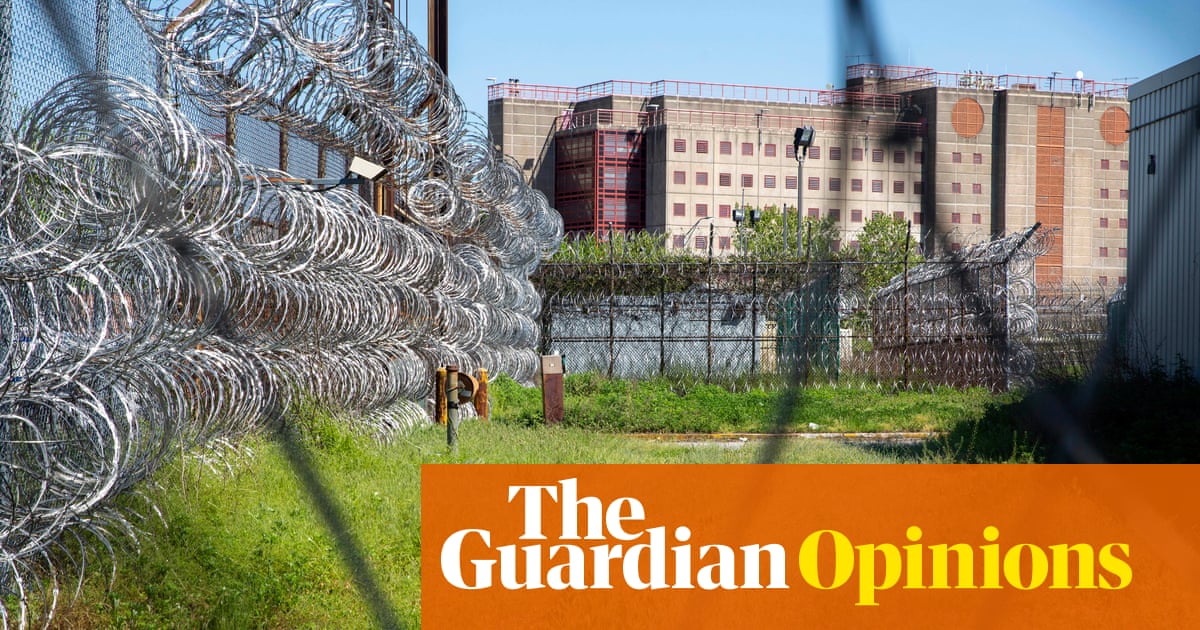Across the country, a troubling trend is accelerating: the return of institutionalization – rebranded, repackaged and framed as “modern mental health care”. From Governor Kathy Hochul’spush to expand involuntary commitmentin New York to Robert F Kennedy Jr’sproposal for “wellness farms”under his Make America Healthy Again (Maha) initiative, policymakers are reviving the logics of confinement under the guise of care.
These proposals may differ in form, but they share a common function: expanding the state’s power to surveil, detain and “treat” marginalized people deemed disruptive or deviant. Far from offering real support, they reflect a deep investment in carceral control – particularly over disabled, unhoused, racialized and LGBTQIA+ communities. Communities that have often seen how the framing of institutionalization as “treatment” obscures both itsviolent history and its ongoing legacy. In doing so, these policies erase community-based solutions, undermine autonomy, and reinforce the very systems of confinement they claim to move beyond.
TakeHochul’s proposal, which seeks to lower the threshold for involuntary psychiatric hospitalization in New York. Under her plan, individuals could be detained not because they pose an imminent danger, but because they are deemed unable to meet their basic needs due to a perceived “mental illness”. This vague and subjective standard opens the door to sweeping state control over unhoused people, disabled peopleand others struggling to survive amid systemic neglect. Hochul also proposes expanding the authority to initiate forced treatment to a broader range of professionals – including psychiatric nurse practitioners – and would require practitioners to factor in a person’s history, in effect pathologizing prior distress as grounds for future detention.
This is not a fringe proposal. It builds on a growing wave of reinstitutionalization efforts nationwide. In 2022, New York City’s mayor, Eric Adams, directed police and EMTs to forciblyhospitalize people deemed “mentally ill”, even without signs of imminent danger. In California, Governor Gavin Newsom’s Care courtscompel people into court-ordered “treatment”.
Now, these efforts are being turbocharged at the federal level. RFK Jr’s Maha initiative proposes labor-based “wellness farms” as a response to homelessness and addiction – an idea thateerily echoes the institutional farmsof the 20th century, where disabled people and people of color were confined, surveilled and exploited under the guise of rehabilitation.
Just recently, the US Department of Health and Human Services (HHS)announced a sweeping restructuringthat will dismantle critical agencies and consolidate power under a new “Administration for a Healthy America” (AHA). Aligned with RFK Jr’s Maha initiative and Donald Trump’s “department of government efficiency” directive, the plan merges the Substance Abuse and Mental Health Services Administration (SAMHSA), the Health Resources and Services Administration (HRSA) and other agencies into a centralized structure ostensibly focused on combating chronic illness. But through this restructuring –and the mass firing of HHS employees– the federal government is gutting the specialized infrastructure that supports mental health, disability services and low-income communities.
The restructuring is already under way: 20,000 jobs havebeen eliminated, regional offices slashed, and the Administration for Community Living (ACL)dissolved its vital programsfor older adults and disabled people scattered across other agencies with little clarity or accountability. This is not administrative streamlining; it is a calculated dismantling of protections and supports, cloaked in the rhetoric of efficiency and reform. SAMHSA – a pillar of the country’s behavioral health system, responsible for coordinating addiction services, crisis response and community mental health care –is being gutted, threatening programs such as the 988 crisis line and opioid treatment access. These moves reflect not just austerity, but a broader governmental strategy ofmanufactured confusion. By dissolving the very institutions tasked with upholding the rights and needs of disabled and low-income people, the federal government is laying the groundwork for a more expansive – and less accountable – system of carceral “care”.
This new era of psychiatric control is being marketed as a moral imperative. Supporters insist there is a humanitarian duty to intervene – to “help” people who are suffering. But coercion is not care. Decades of research show that involuntary (forced) psychiatric interventions oftenlead to trauma, mistrust,and poorer health outcomes. Forced hospitalization has been linked toincreased suicide riskand long-term disengagement from mental health care. Most critically, it diverts attention from the actual drivers of distress: poverty, housing instability, criminalization, systemic racism and a broken healthcare system.
The claim that we simply need more psychiatric beds is a distraction. What we need is a complete paradigm shift – away from coercion and toward collective care. Proven alternatives already exist:housing-first initiatives,non-police and peer-led crisis response teams,harm reduction programs, andvoluntary, community-based mental health services. These models prioritize dignity, autonomy and support over surveillance, control and confinement.
AsLiat Ben-Moshe argues, prisons did not simply replace asylums; rather, the two systems coexist and evolve, working in tandem to surveil, contain and control marginalized populations. Today, reinstitutionalization is returning under a more therapeutic facade: “wellness farms”, court diversion programs, expanded involuntary commitment. The language has changed, but the logic remains the same.
This moment demands resistance. We must reject the idea that locking people up is a form of care. These proposals must be named for what they are: state-sanctioned strategies of containment, rooted in ableism, racism and the fear of nonconformity.
Real public health does not rely on force. It does not require confining people or pathologizing poverty. It means meeting people’s needs – through housing, community care, healthcare and support systems that are voluntary, accessible and liberatory.
As budget negotiations inNew Yorkcontinue to drag on – with expansions to involuntary commitment still on the table – and as RFK Jr advances carceral care proposals at the federal level, we face a critical choice: will we continue the long history of institutional violence, or will we build something better – something rooted in justice, autonomy and collective wellbeing?
The future of mental health care – and of human dignity itself – depends on our answer.
Jordyn Jensen is the executive director of theCenter for Racial and Disability Justiceat Northwestern Pritzker School of Law
